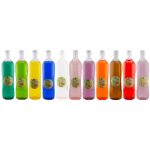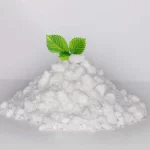What Is a Paraffin Solvent? + Applications, Properties, and Safety Tips
what will you read...
What Is a Paraffin Solvent?Toluene – An Effective Solvent for ParaffinXylene – A Solvent with Properties Similar to TolueneBenzene – A Strong Solvent for ParaffinNaphtha – An Aliphatic Solvent Suitable for ParaffinGeneral Properties of Paraffin SolventsSafety Tips for Using Paraffin SolventsConclusion:
Paraffin solvents include chemical substances such as toluene, benzene, xylene, and naphtha, which are used to dissolve paraffin in various industries. This article examines different types of solvents and their applications.
Paraffin is a petroleum-derived substance widely used in industries such as candle making, wax production, and packaging. One of the main challenges in working with paraffin is the need to dissolve it in a liquid medium. This article
explores solvents capable of dissolving paraffin—such as toluene, benzene, xylene, and naphtha. These solvents not only possess strong dissolving power but are also highly effective in specific industrial applications.
What Is a Paraffin Solvent?
Paraffin solvents are typically organic chemicals capable of dissolving paraffin at various temperatures. Paraffin is a non-polar compound and requires solvents with similar characteristics for effective dissolution. Suitable solvents for
paraffin often belong to the aromatic or aliphatic hydrocarbon families. Due to their high solvency power, these solvents are widely used in numerous industries.
Toluene – An Effective Solvent for Paraffin
Properties:
-
Boiling point: around 110°C
-
Odor: strong and pungent
-
Solubility power: high for paraffin
-
Volatility: moderate
Applications:
Toluene is an aromatic solvent with high efficacy in dissolving paraffin. It is used in candle manufacturing, wax production, and in extracting paraffin from petroleum-based materials. Toluene is also applied in the dilution of certain
compounds and in laboratories.
Xylene – A Solvent with Properties Similar to Toluene
Properties:
-
Boiling point: around 138–144°C
-
Odor: milder than toluene
-
Solubility power: moderate
-
Volatility: lower than toluene
Applications:
Xylene is another effective solvent for dissolving paraffin. It is used in refineries, candle and wax production. Xylene is particularly useful at high temperatures and in extraction processes.
Benzene – A Strong Solvent for Paraffin
Properties:
-
Boiling point: 80°C
-
Solubility power: very high
-
Volatility: high
-
Toxicity: very high
Applications:
Benzene is a very powerful solvent for paraffin. However, due to its high toxicity, its use is restricted in many industries. It is mostly used in laboratories and certain petroleum refining processes.
Naphtha – An Aliphatic Solvent Suitable for Paraffin
Properties:
-
Boiling point: around 80–180°C
-
Color: colorless to light yellow
-
Odor: mild petroleum-like
-
Density: lower than water
Applications:
Naphtha is an aliphatic solvent used in industries such as oil refining and the production of intermediate fuels. It effectively dissolves paraffin and is used in the production of petroleum products like diesel, gasoline, and other fuels.
General Properties of Paraffin Solvents
Paraffin solvents have certain characteristics that make them suitable for dissolving paraffin:
-
High solvency power: These solvents can fully dissolve paraffin due to their specific chemical nature.
-
Variable volatility: Each solvent has its own level of volatility, which should be considered in industrial applications.
-
Temperature and boiling point: Many paraffin solvents are more effective at elevated temperatures.
-
Toxicity and safety: Some solvents, such as benzene, require extra precautions due to their high toxicity.
Safety Tips for Using Paraffin Solvents
Although paraffin solvents such as toluene, xylene, benzene, and naphtha are useful in many industries, they must be handled with strict safety precautions, as they may pose serious chemical and physical hazards. Here are key
safety tips for using paraffin solvents:
-
Proper Ventilation
These solvents release volatile and flammable vapors that can be hazardous. Therefore, ensure proper ventilation in the workplace, especially in enclosed areas. Industrial ventilation systems or air purification units can prevent harmful vapor accumulation. -
Use of Personal Protective Equipment (PPE)
When working with solvents, always wear protective gear such as chemical-resistant gloves, safety goggles, and filtered masks. These protect against direct skin and eye contact and prevent inhalation of harmful vapors. -
Fire Hazard Prevention
Paraffin solvents, particularly benzene, toluene, and naphtha, are highly flammable. Keep them away from ignition sources such as open flames, sparks, or heat. Storage and handling must prevent fire risks. -
Avoid Skin Contact and Inhalation
Direct contact with solvents may cause irritation or chemical burns. Benzene, even with short exposure, can have severe effects on the skin. Always use protective gloves and garments. In case of contact, rinse the affected area thoroughly with water. -
Safe Storage and Transport
Solvents should be stored in compatible, chemical-resistant containers—typically made of metal or specialized plastics. Transport should comply with safety protocols and prevent exposure to other hazardous substances. -
Understanding Chemical Hazards
Each solvent carries unique risks:
-
Benzene: A known carcinogen that can affect the central nervous system.
-
Toluene and xylene: May harm the nervous system and cause dizziness, headaches, and respiratory issues.
-
Naphtha: Can irritate the respiratory and digestive systems.
-
Emergency Preparedness
In case of accidents, having an emergency response plan is essential. This should include detailed instructions for spill containment, fire extinguishing, and first aid. Disinfectants and first aid kits should be easily accessible.
Conclusion:
Choosing the right solvent for paraffin depends on the application, environmental temperature, and safety restrictions. Toluene, xylene, and naphtha are commonly used in various industries for dissolving paraffin. Benzene, although
very effective, should only be used with extreme caution due to its high toxicity.
Using paraffin solvents must always follow strict safety guidelines. While these chemicals are useful across industries, they pose serious health and safety risks. By applying the appropriate precautions and handling procedures,
accidents can be prevented, ensuring that industrial operations are carried out safely.

















